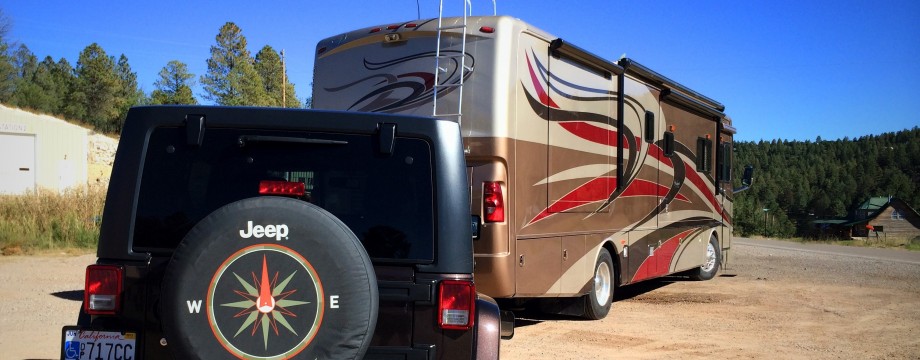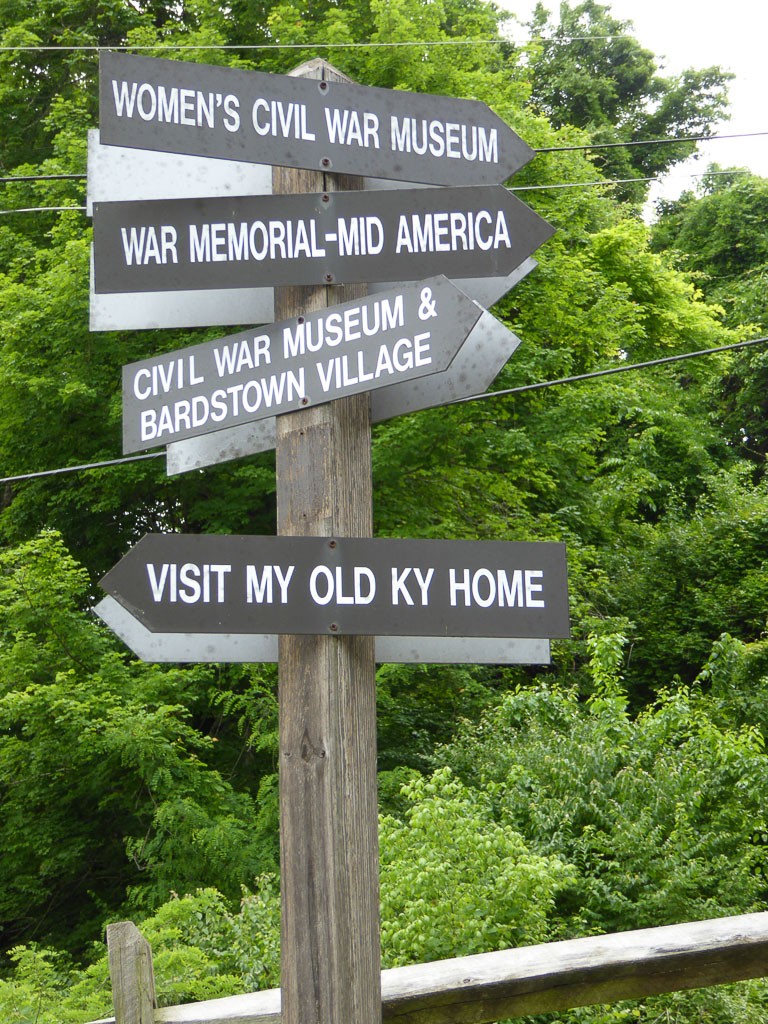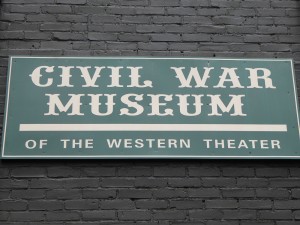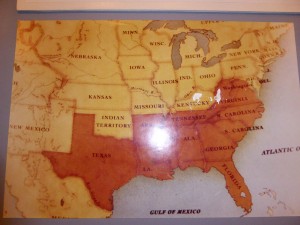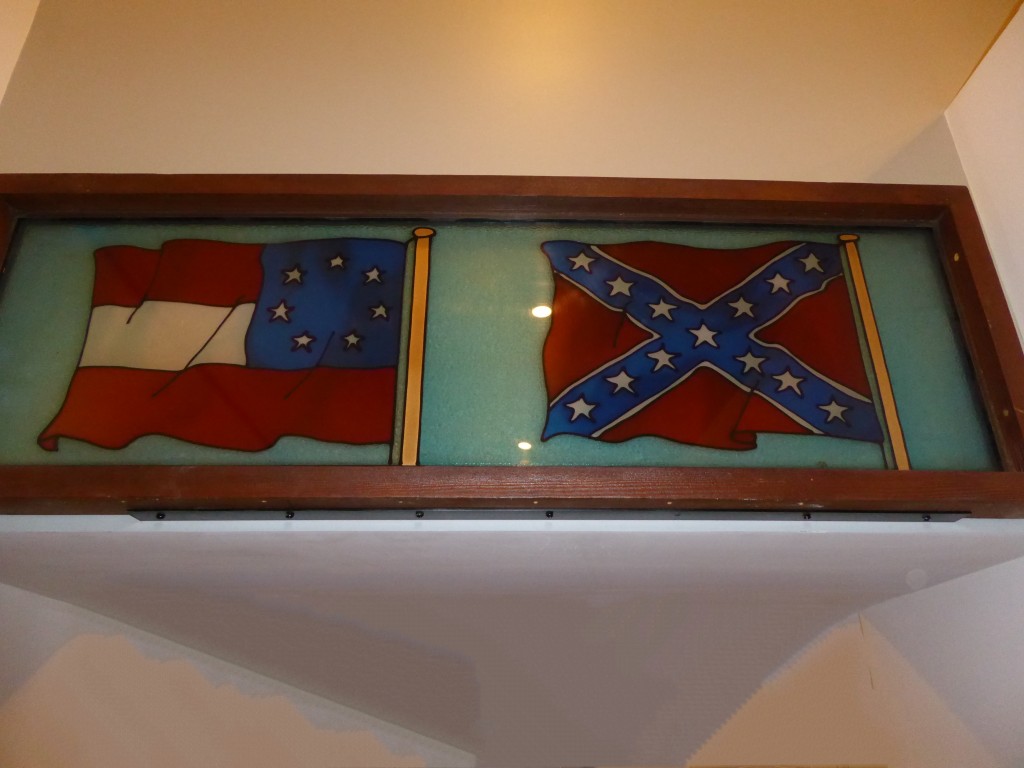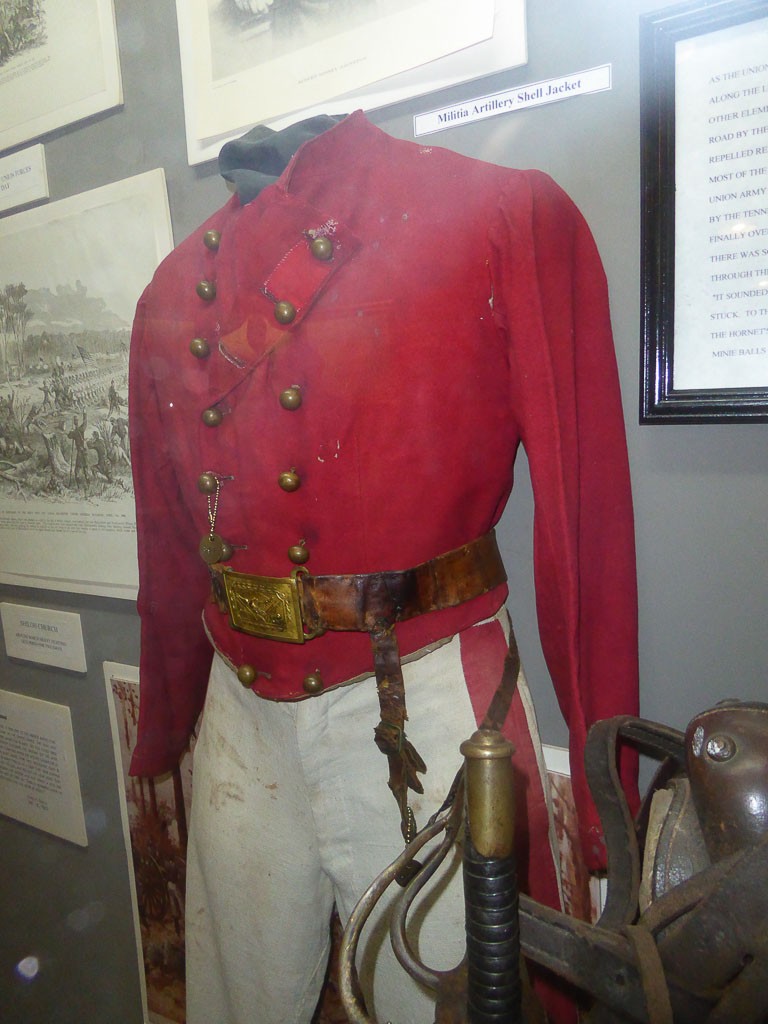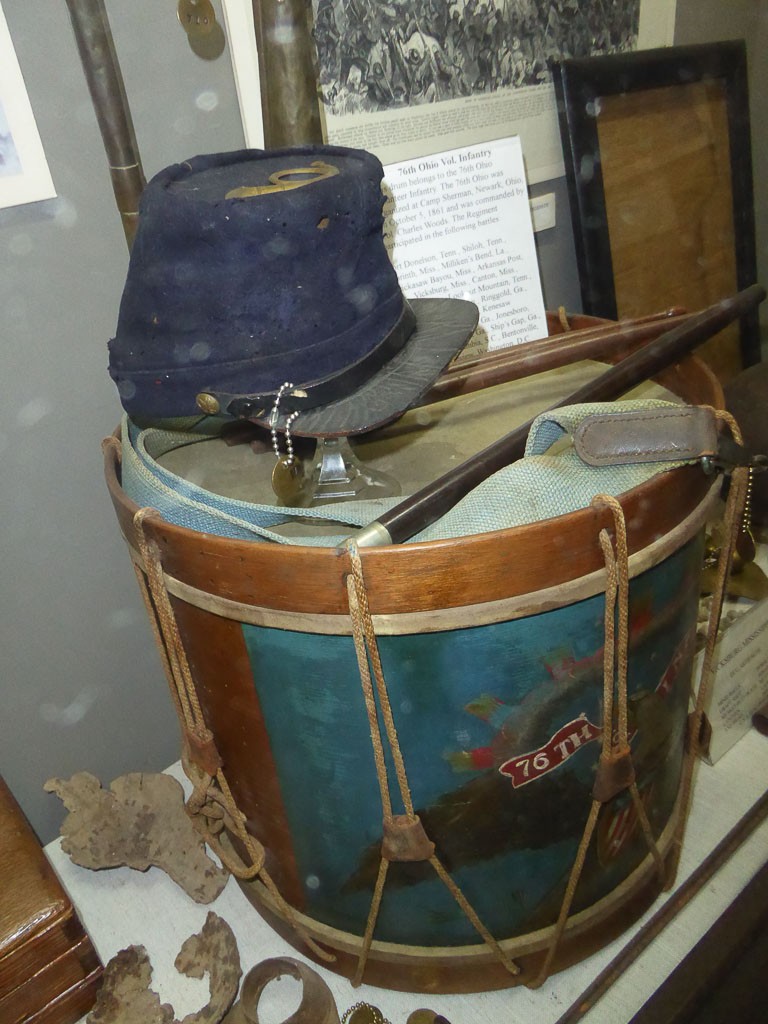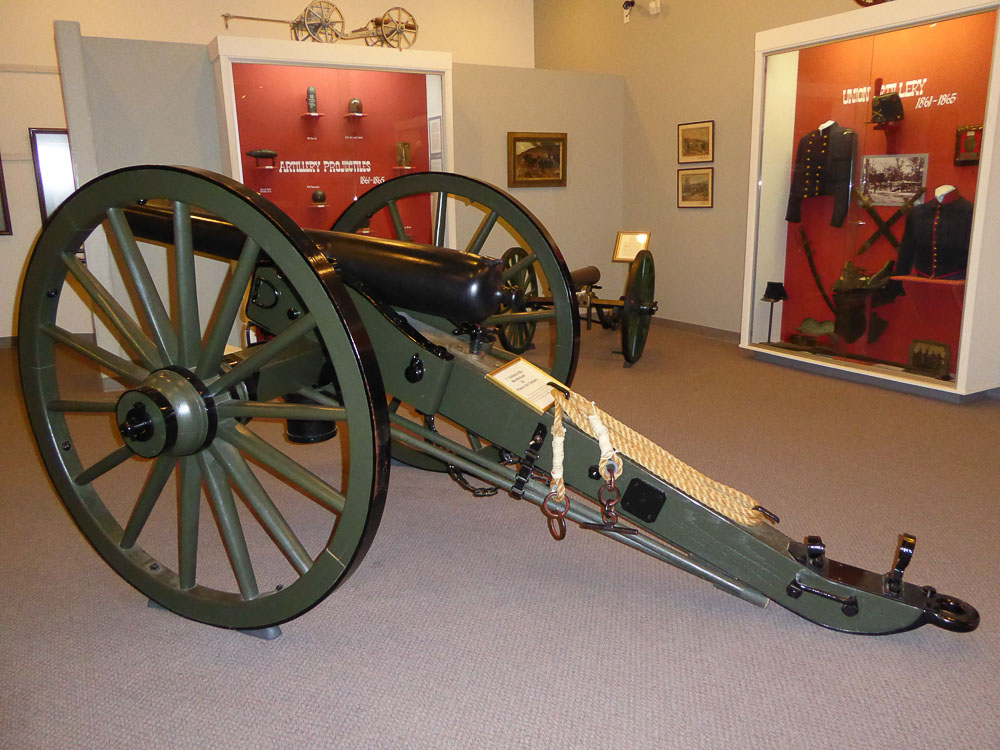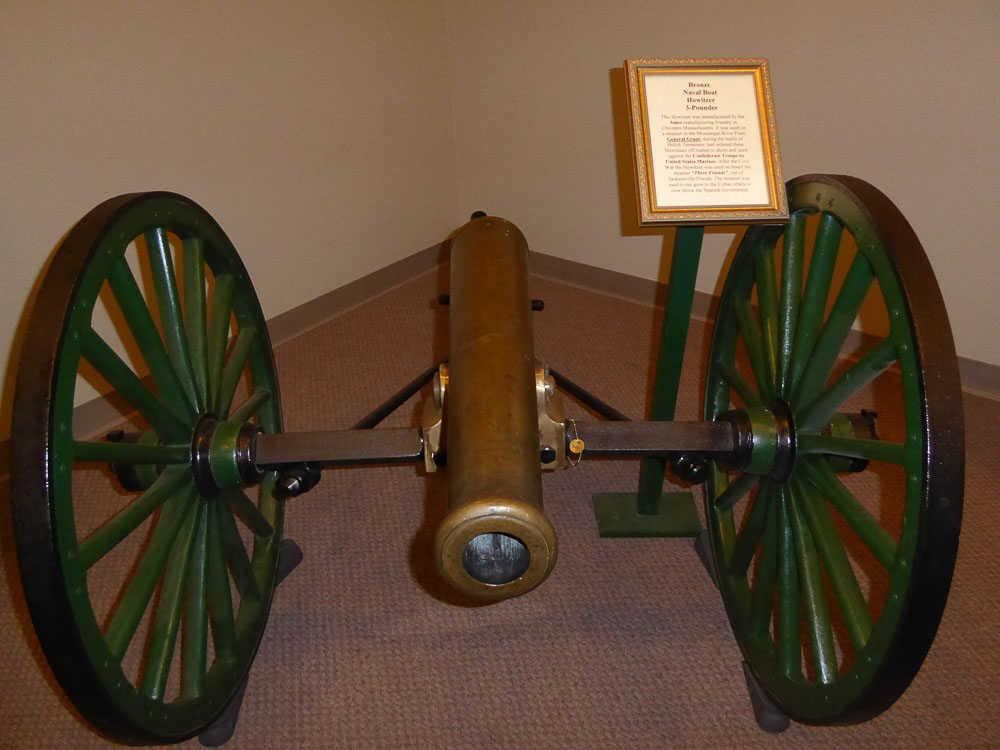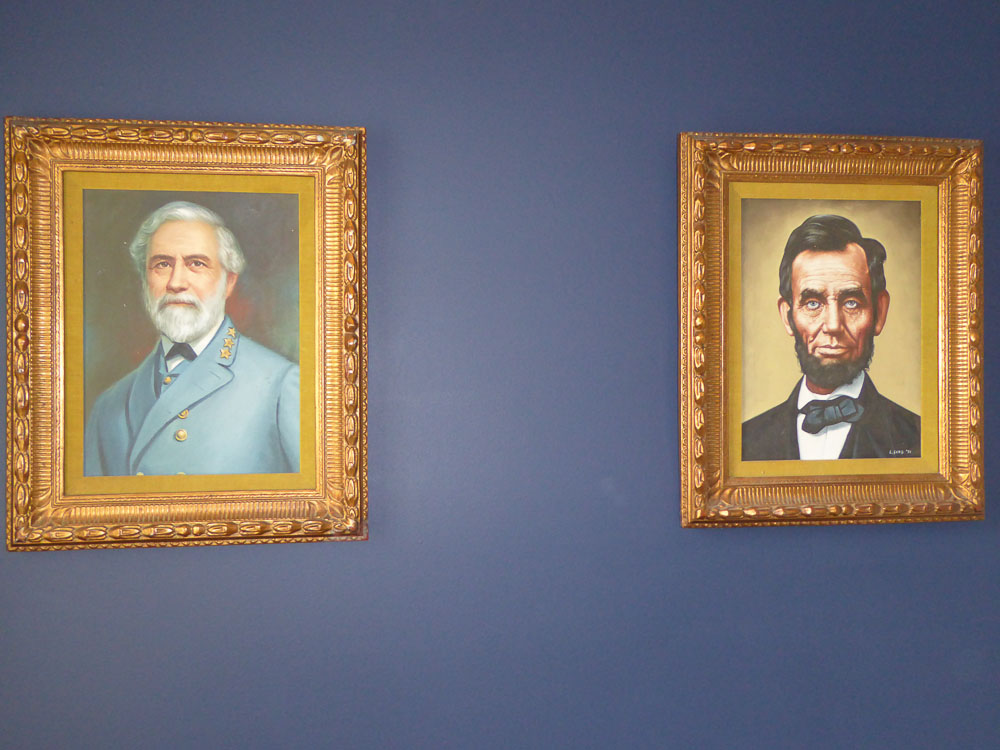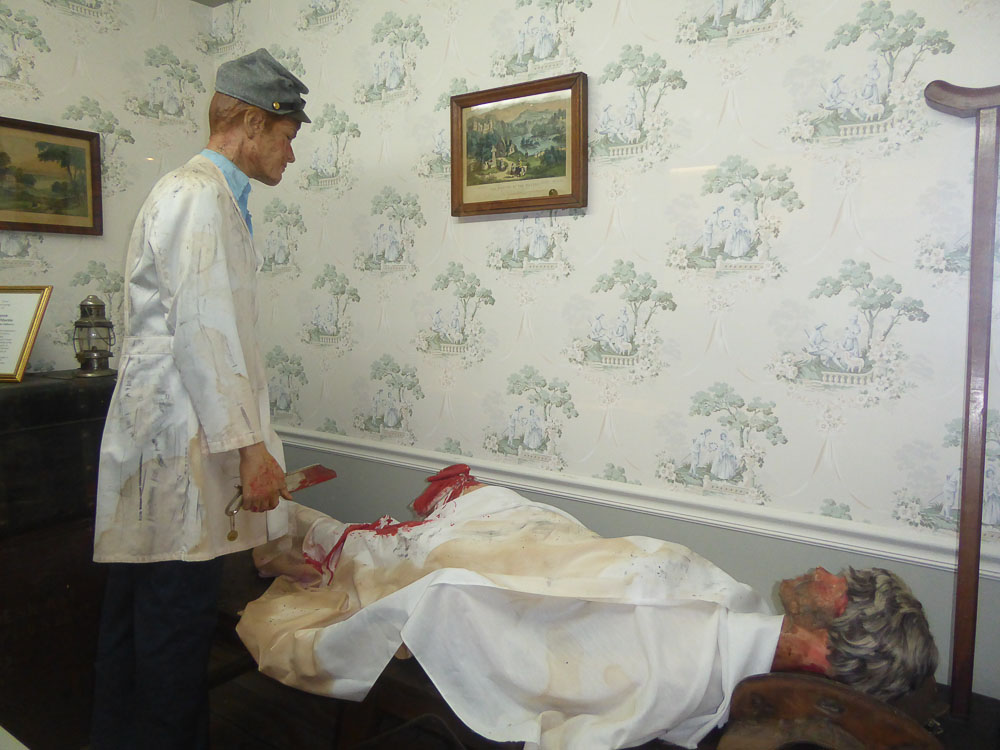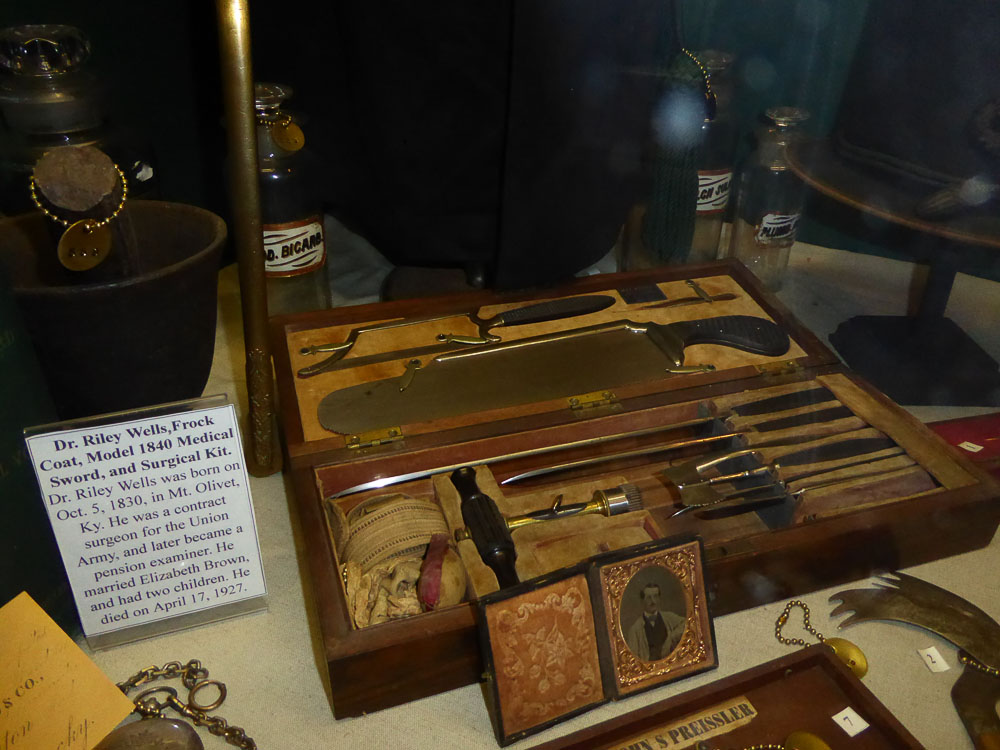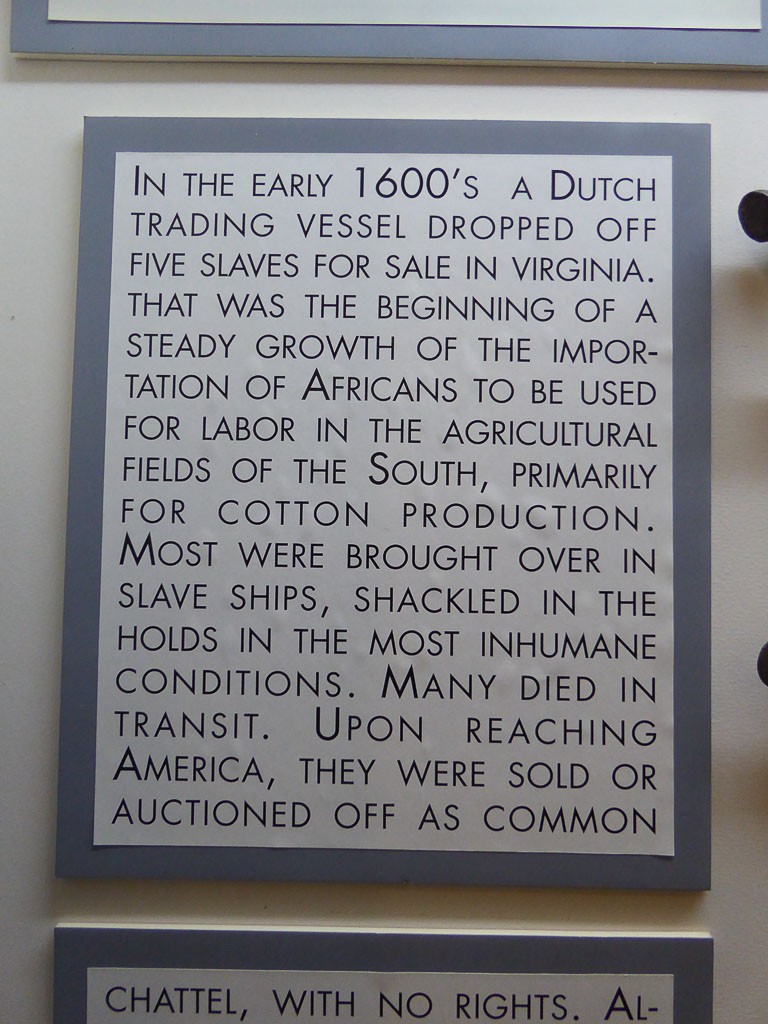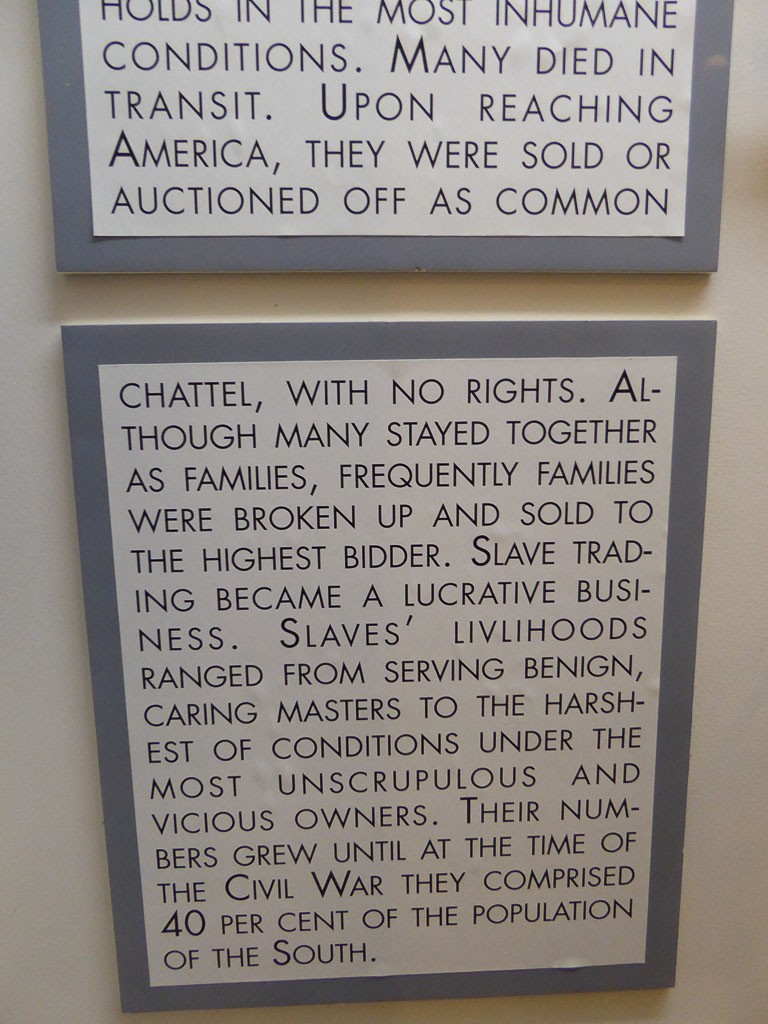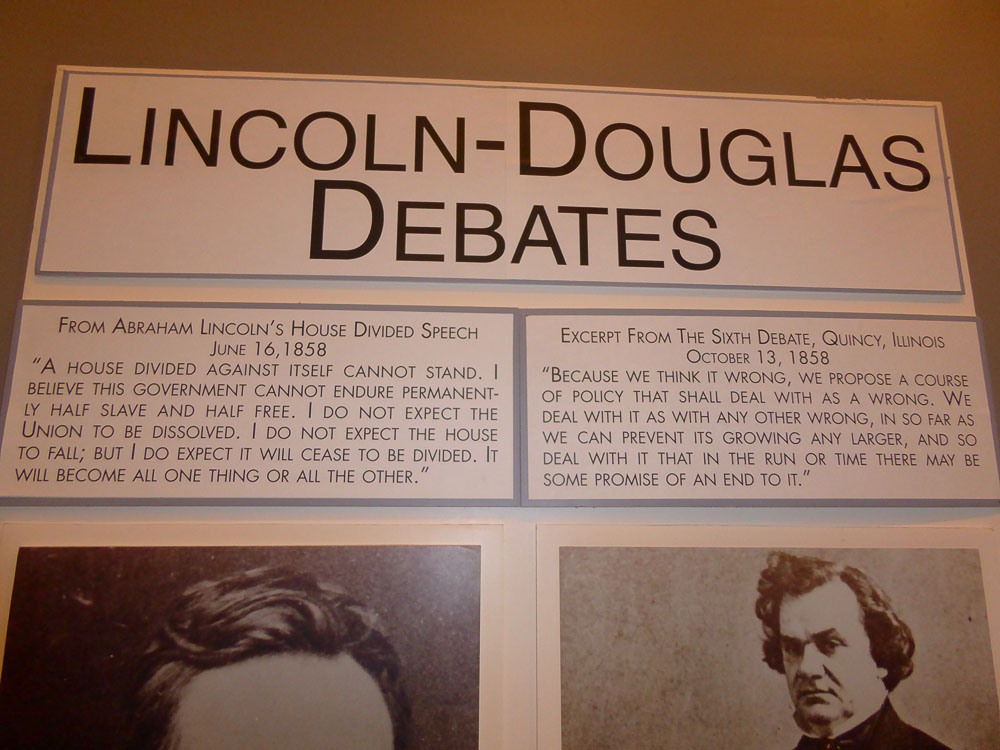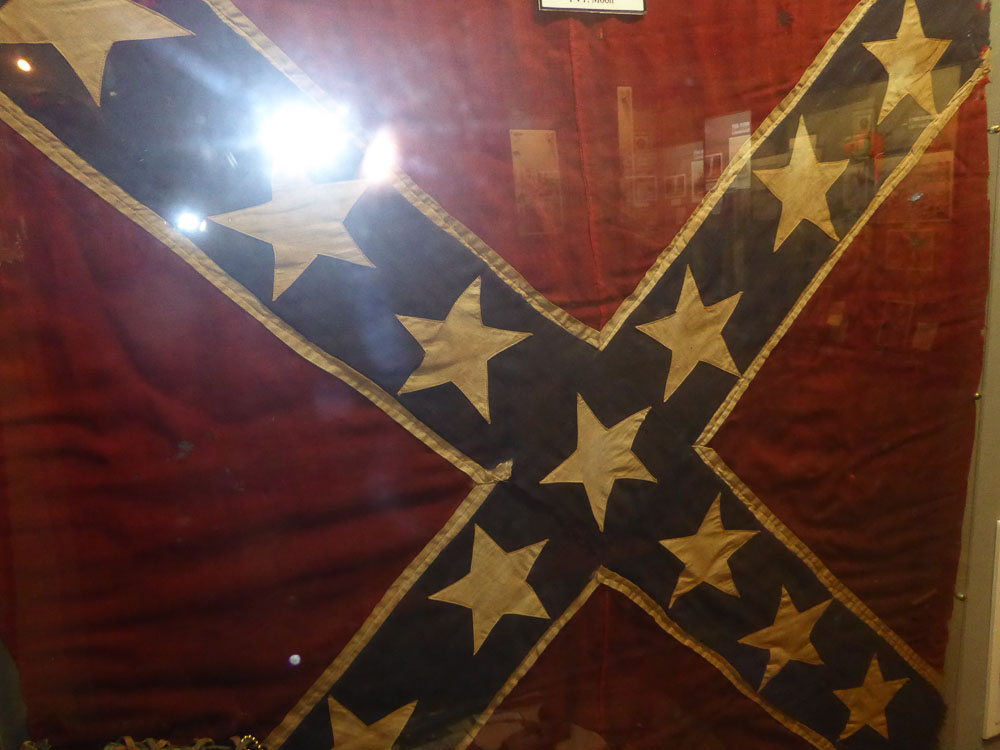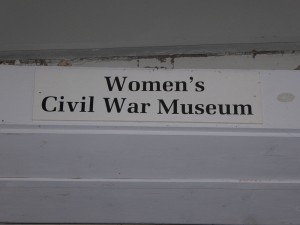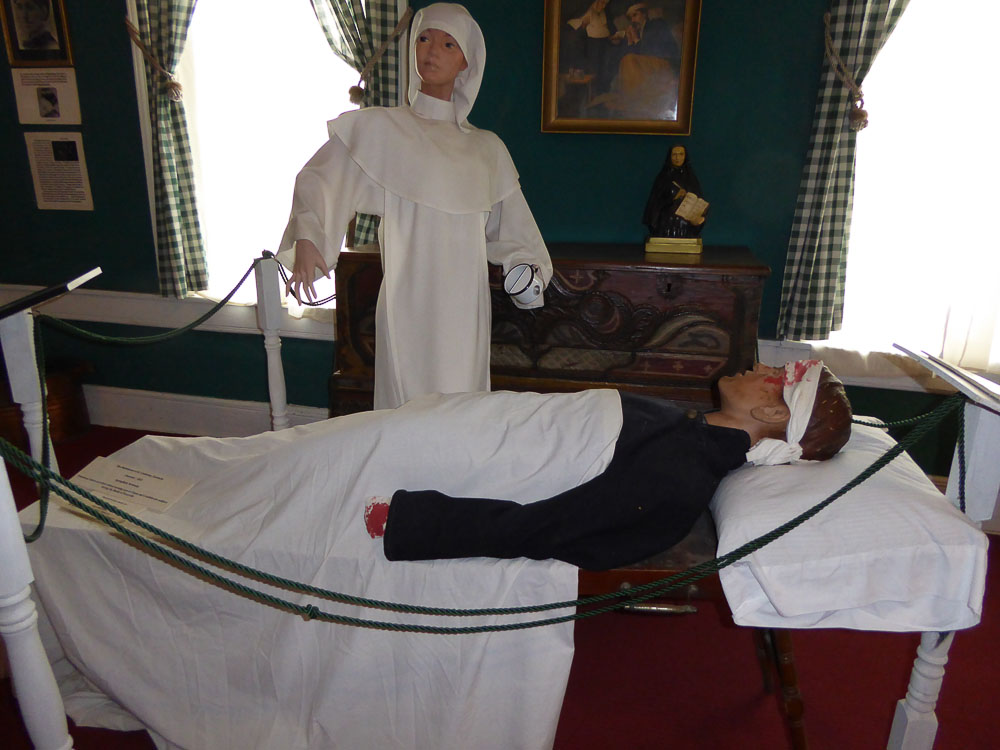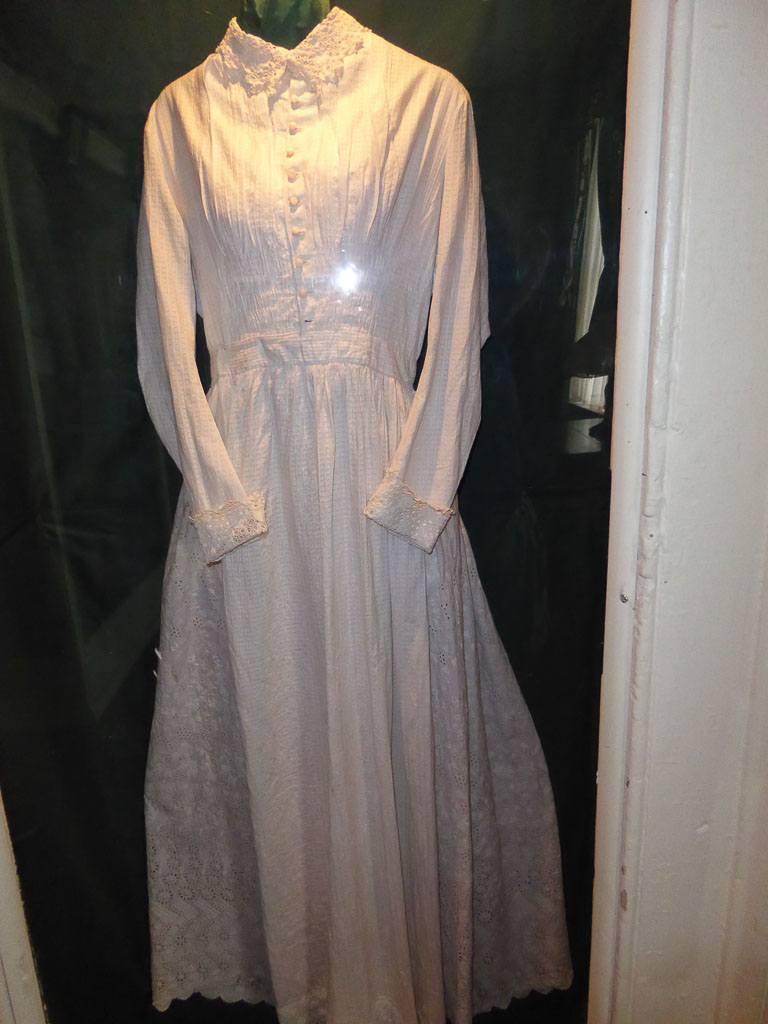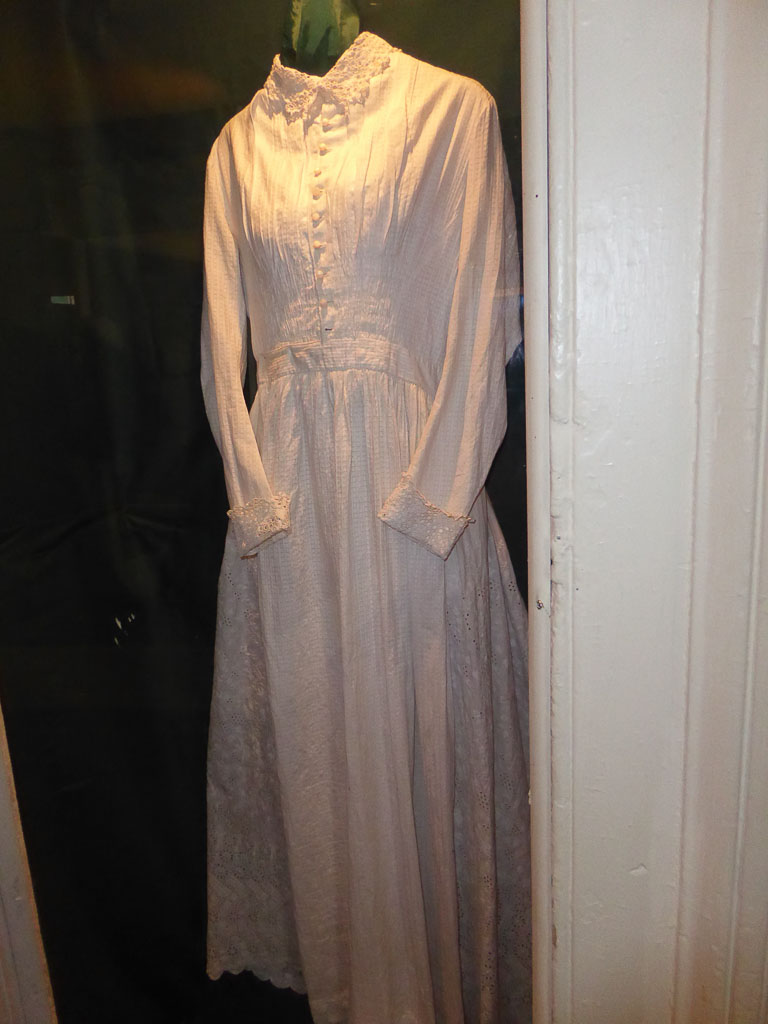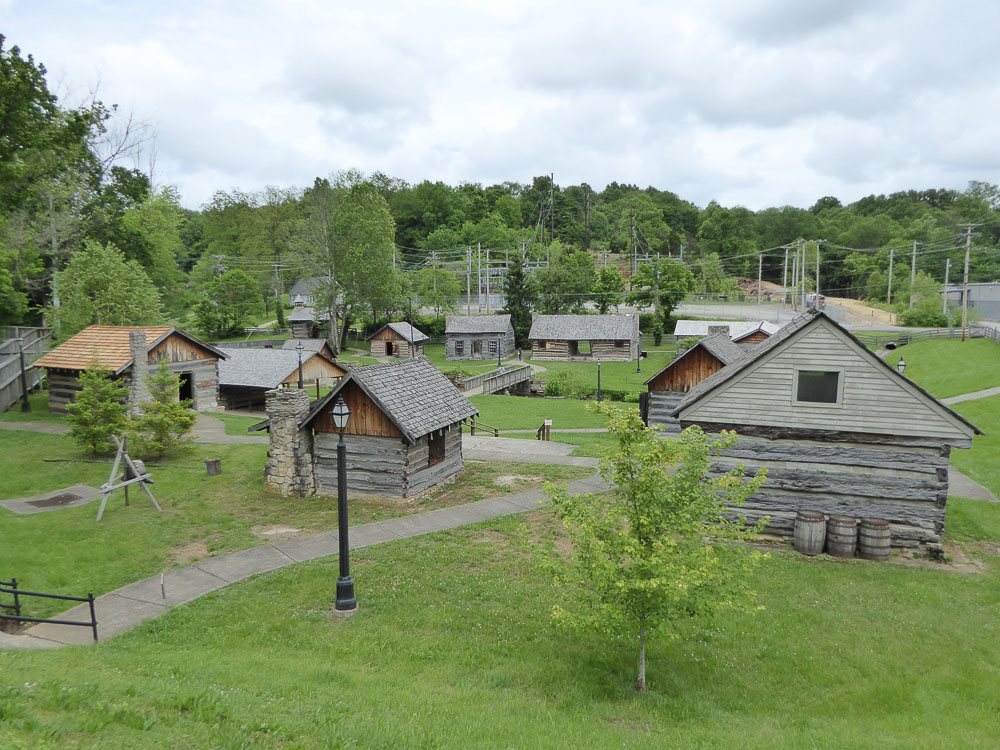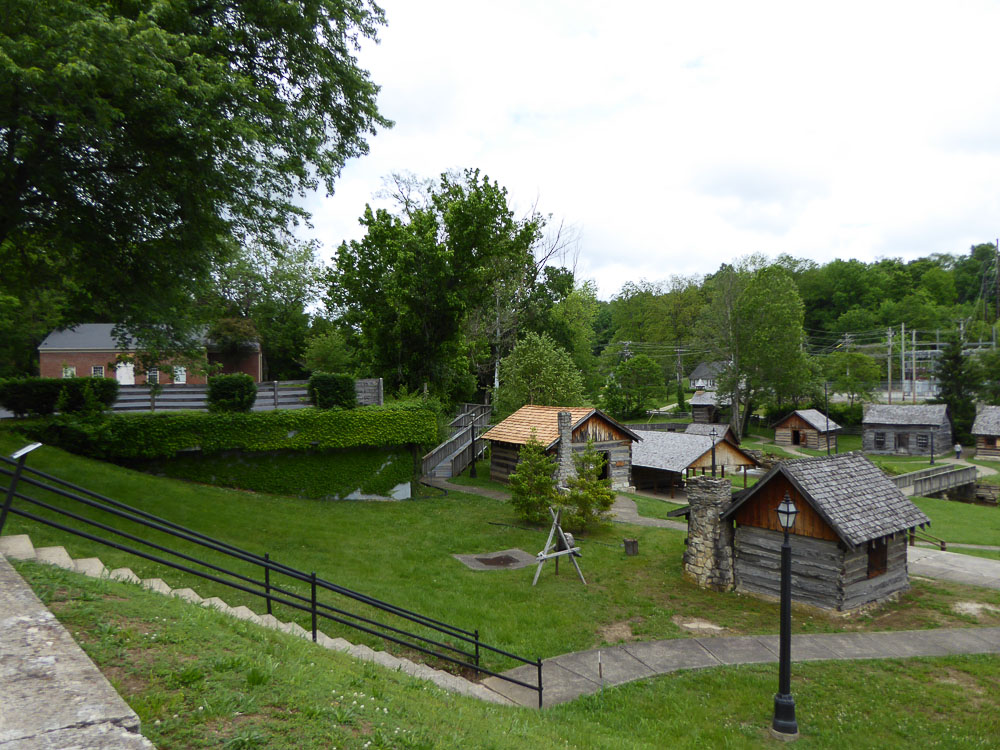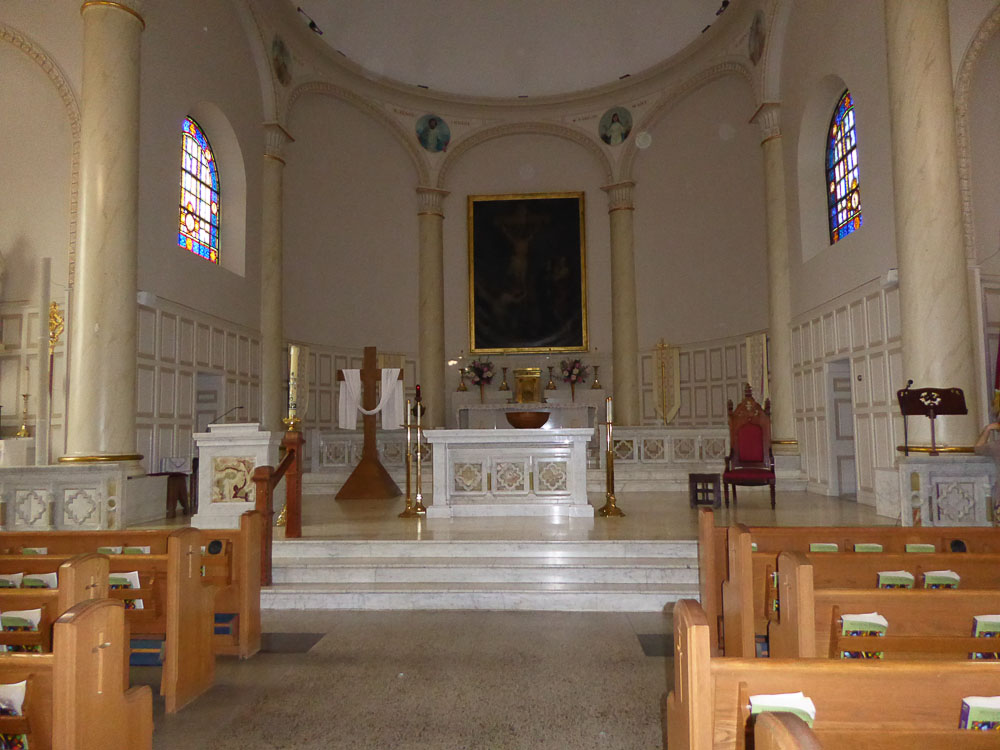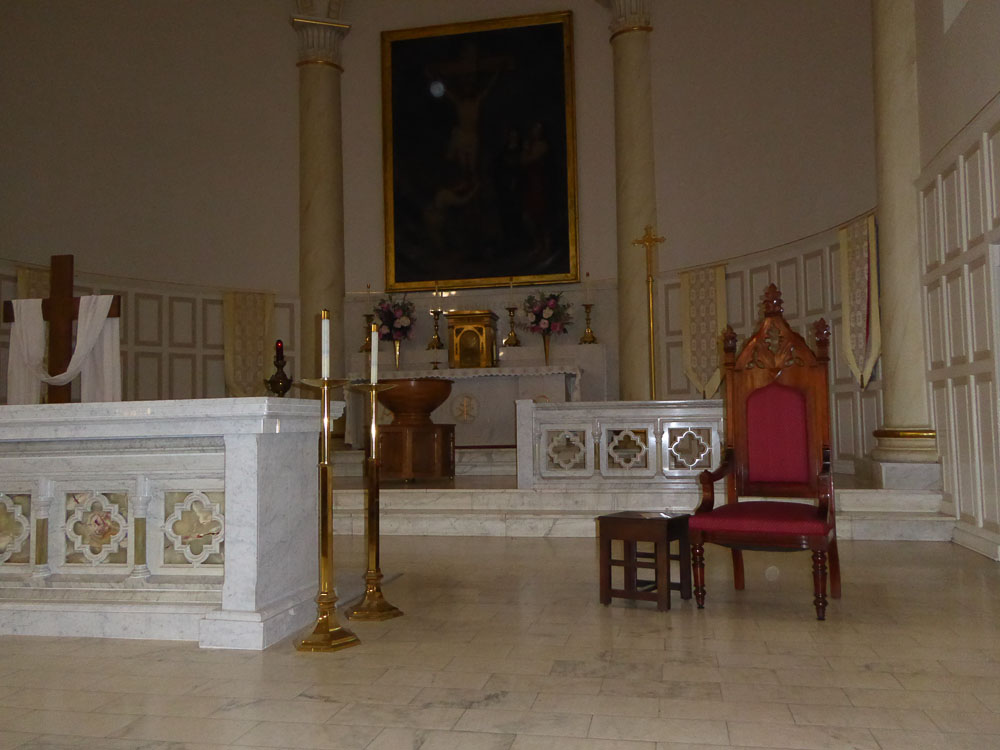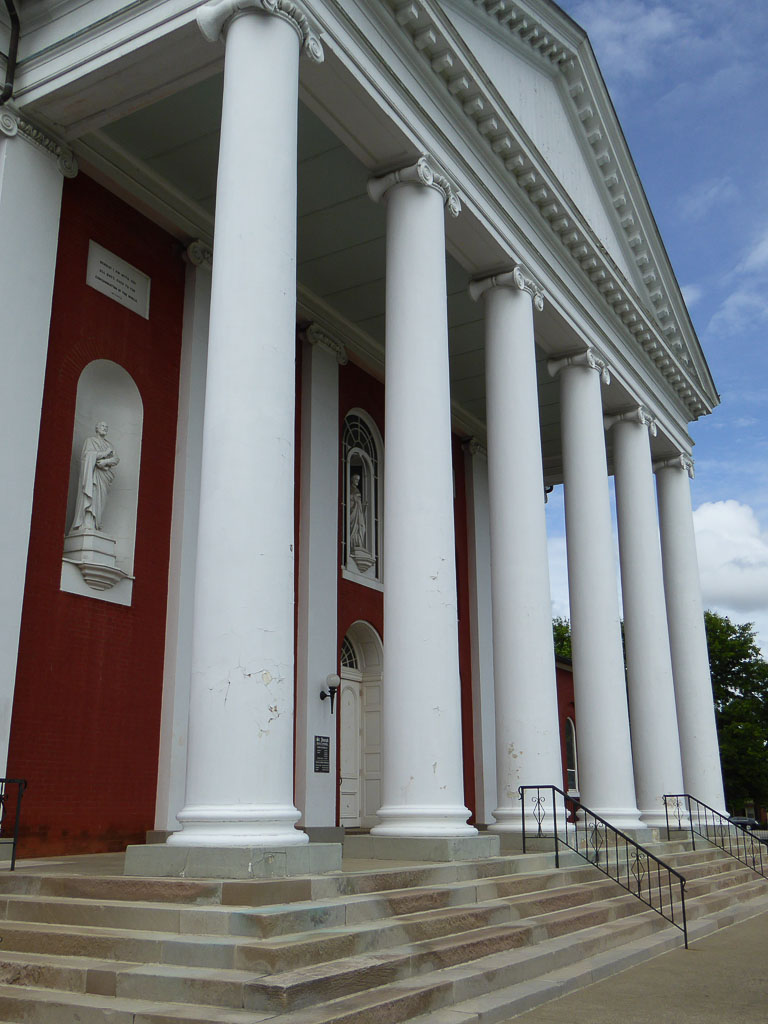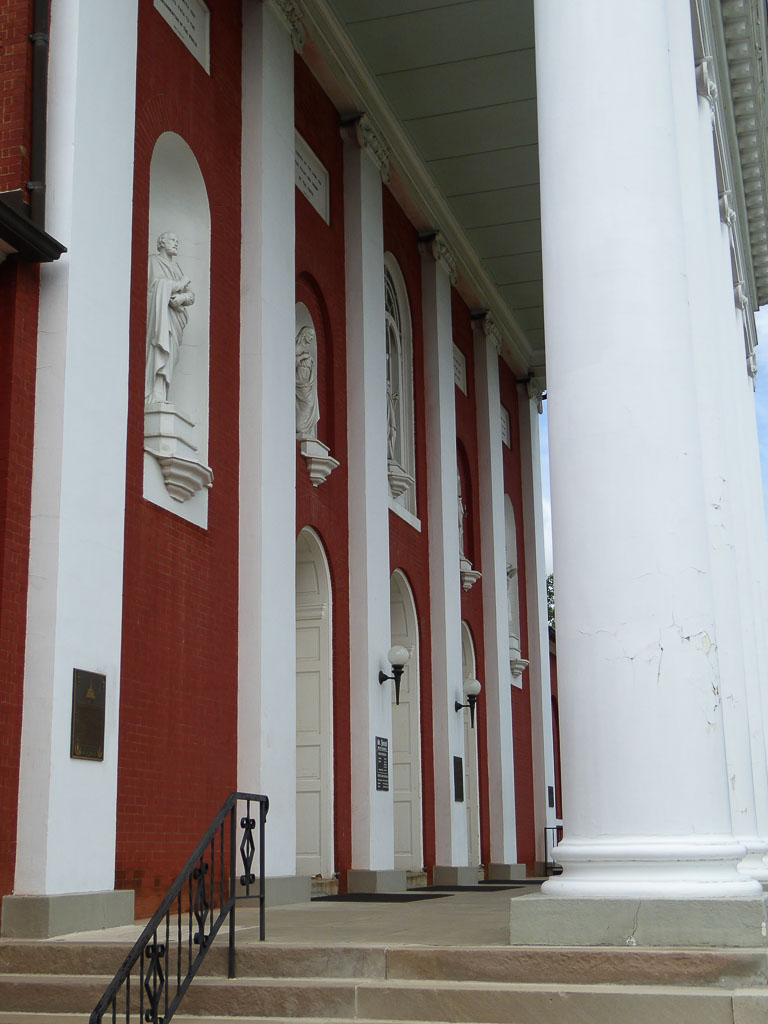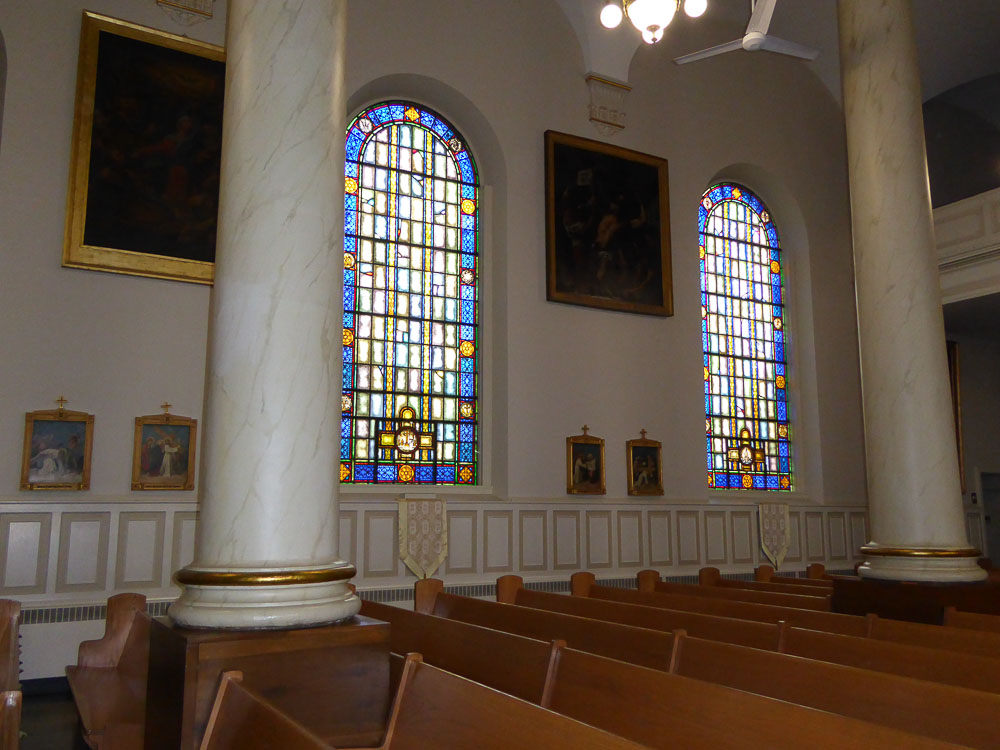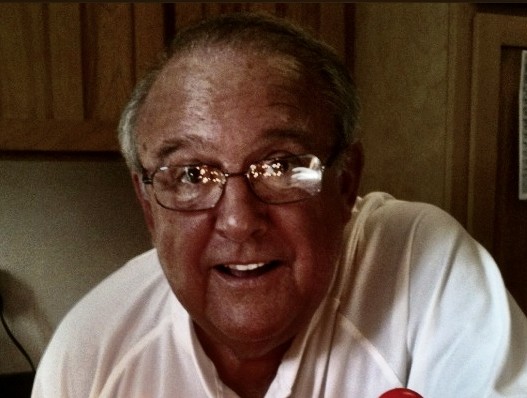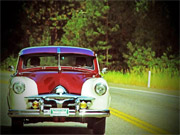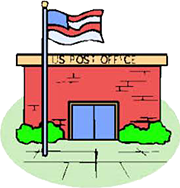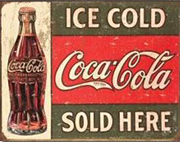MAY 18, 2015 BARDSTOWN, KENTUCKY
Museum Row in Bardsdale includes the Civil War Museum, the Colonial Village and the Women’s Civil War Museum. By far the largest, and the one with the most exhibits, is the Civil War Museum.
THE CIVIL WAR MUSEUM. Located in what used to be the town’s water works and ice-house, the huge building has been completely renovated. It is the fourth largest Civil War Museum in the United States. Unlike the others, this one focuses mainly on the War of the Western States. The story of the western theater is told plainly in geographic and chronological segments. We walked through a sdries of exhibits featuring myriad artifacts from both the Union and the Confederacy.
Examples of some of the artifacts we saw include the flag of the 2nd Kentucky Cavalry, the presentation sword of Confederate Brigadier General Lloyd Tilghman and a silver flask presented to Confederate General John C. Breckinridge a few days after he joined the Confederate Army. The museum also has infantry, cavalry and naval artillery rooms.
(CLICK ANY PHOTO TO ENLARGE THAT IMAGE.)
THE WESTERN THEATER OF THE CIVIL WAR
The Western Theater of the Civil War included that area west of the Appalachian Mountains. Toward the end of the War, western armies invaded Georgia, captured Atlanta, marched to the sea at Savannah, turned north and ended up the War in North Carolina. In essence, even though the eastern battles got much of the publicity, it was the western armies that destroyed the South’s ability to continue fighting and carry on the War. Both Presidents, North and South, came from the west, in Kentucky. And the three most famous Union generals came from the west and fought many of their battles there. Those generals were Grant, Sherman and Sheridan.
WHY IS THE CIVIL WAR MUSEUM IN BARDSTOWN?
The question is: “Why should the Civil War Museum be located in Bardstown, Kentucky?” First, the town is located about half way between the Appalachian Mountains and the Mississippi River, and half way between the Great Lakes and the Gulf of Mexico. Although no major battles were fought here, the tides of war rolled over it time and time again. Both presidents got their schooling about sixteen miles from here. When General Braxton Bragg marched his army north in the Kentucky campaign, he got as far as Bardstown, camped here for a week and then withdrew southwest to fight a battle at Perryville. As part of that campaign, a small battle was fought just a few miles north of Bardstown, when General Wharton and his Texas Rangers fought their way out of encirclement by three Union Regiments. Union troops were encamped here for a long time during the War, and a small skirmish was fought below the town, by the mill.
SOME OTHER REASONS THE MUSEUM IS HERE
General John Hunt Morgan came through Bardstown on three of his raids, and fought a battle with Union troops barricaded in the livery stable. His second in command, General Basil Duke was cared for and hidden by a local doctor after another nearby skirmish where he suffered a head wound.
In no place in America was the saying “brother against brother” more true. Many families were split down the middle. The community of Bardstown was continually harassed by guerrillas. William Clark Quantrill, called the “bloodiest man in America” was shot and captured in a barn just 15 miles from Bardstown. And Frank James surrendered only 5 miles away at Deatsville Station. So you see, not many places have a more varied Civil War history than Bardstown. And that’s why the museum is located here.
THE WOMEN’S CIVIL WAR MUSEUM. While women, with a few fascinating exceptions, did not share in the bloodbath which was such a part of the Civil War, their contributions to it and their suffering because of it were just as real as with the men who fought. To the women was left the responsibility of maintaining some degree of sanity in a world gone mad. In their quiet times, they prayed and worried for the safety of loved ones far away. Their remaining time was spent lending comfort to the soldiers of their country and in maintaining home and hearth. The struggles they waged have never been heralded like the great conflicts fought on so many fields across this land, but without the efforts of the women neither army would have been able to remain in the field for the length of time that they did. And so the women, too, fought the War as surely as if they had handled muskets on the firing line.
OLD BARDSTOWN COLONIAL VILLAGE. The Old Bardstown Colonial Village is a recreation of a 1790’s frontier village, representative of the first westward movement of the nation. The cabins are 150 to 200 years old.
BASILICA OF ST. JOSEPH PROTO-CATHEDRAL
Our last stop of the day was at the Basilica of St. Joseph Proto-Cathedral. It was the first Catholic cathedral west of the Allegheny Mountains. The church was built between 1816 and 1819 and contains fine paintings which were gifts from Francis (King of the two Sicilies) and Pope Leo XII. Donations are requested to be deposited in a box at the back of the church. And I forgot to make one. I’m thinking maybe I should drive back there and stuff some cash into that box. I don’t want lightening to strike me! But it was just an oversight, honest!
Our next stop will be Holmes County in Ohio, home to the largest Amish settlement in the United States. It promises to be a very interesting place. Plan to join us and meet some of these people, see their crafts and learn about their way of life. And count on me to take lots of pictures, although I’m going to make sure I’m not rude, presumptuous or insensitive when I take them.
SEE YOU IN A FEW DAYS.


